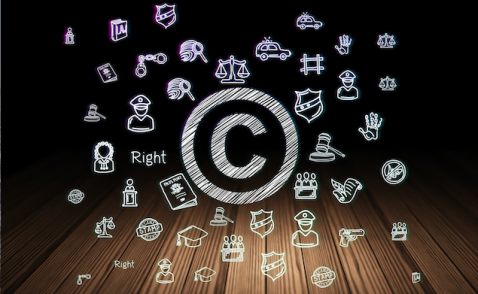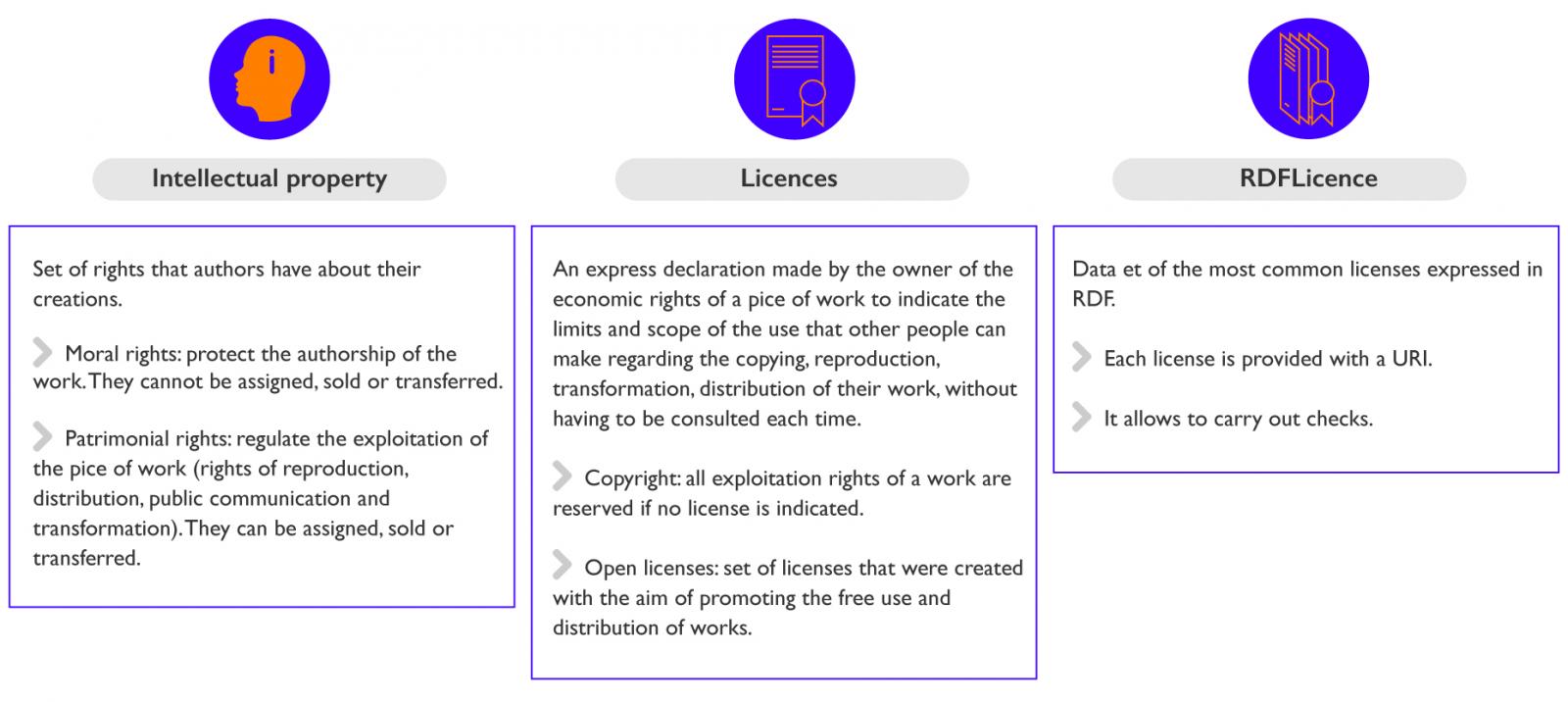Why are licenses important?
Fecha de la noticia: 05-12-2017

Usually news related to intellectual property, copyright and licenses for works published on the Internet arise.
Internet has been associated with a large open and public space, where everything is shared by all. But this is not the case, and contents on the web also subject to legality and intellectual property.
Firstly, we must know that when you create a work (painting, writing...), it has an intellectual property, which could be defined as the set of rights that authors have over their creations.
The set of copyrights are divided into:
- Moral rights: They serve to protect the authorship of the work. These rights can not be assigned, sold or transferred, nor do they prescribe over time.
- Patrimonial rights: They serve to regulate the exploitation of the work (retribution for use, reproduction, modification ...). These rights can be assigned, sold or transferred. The set of exploitation rights is made up of the rights of reproduction, distribution, public communication and transformation.
Therefore, if someone wants to use a work that I have created, he would have to ask for permission to do so. Licenses provide us with the mechanisms to make explicit the permissions that I give others for the use of my works, without needing to ask for permission whenever I want to use it.
In more detail, a license is an express declaration made by the owner of the economic rights of a work to indicate the limits and scope of the use that other people can make with respect to the copying, reproduction, transformation, distribution of their work, without having to be consulted each time.
Within the Spanish state it is important to take into account two aspects:
- When you create a piece of work, it is not mandatory to register it since the author's rights are linked to it with the simple creation of the work.
- If no license is indicated, by default, all exploitation rights of a work are reserved (copyright).
In contrast to the "all rights reserved", there is a set of licenses called "open licenses" that were created with the goal of promoting the free use and distribution of works, being able to demand that the concessionaires preserve the same freedoms when distributing their copies and derivatives.
The choice of a license is something that can take time, being not a trivial aspect. Therefore, there are web pages that help us when choosing the license for our works and data through attendees, such as the Licentia website, created by the Institut National de Recherche en Informatique et en Automatique (INRIA), a French research center specialized in Computer Science, control theory and applied mathematics [link http://licentia.inria.fr/]

In the specific case of Linked Open Data, it is convenient to link the data with their licenses through URIs. On this topic, there is a project called RDFLicense [http://rdflicense.appspot.com/] that has created a data set of the most common licenses expressed in RDF. Thanks to this, not only each URI is provided with a URI, but also, when using Open Digital Rights Language (ODRL) to describe them, it allows to make knowledge inferences and verifications.
In conclusion, open data needs two things: data and openness. And for the data openess it is essential that they are explicitly under an open license. If the data is not under an open license, it is not open data.











